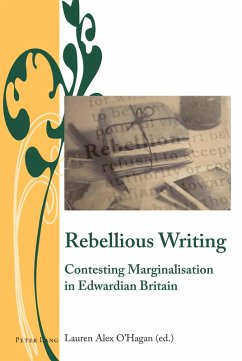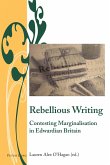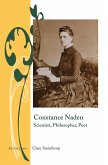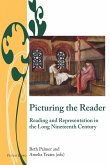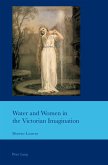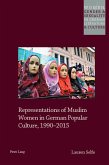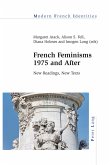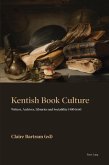The Edwardian era is often romanticised as a tranquil period of garden parties and golden afternoons in which everyone knew their place and nobody questioned the order of things. The reality, however, was quite different. The years between 1901 and 1914 were a highly turbulent period of intense social conflict marked by a heightened awareness of class consciousness, inequality and poverty. The increasing mobilisation of the lower classes and women was often countered with violent means, while anybody considered to be the «other» - immigrants, lunatics, the poor, homosexuals - became the target of widespread discrimination. For many of these groups, the only way to fight back was through writing, which they used to voice resistance and contest traditional power structures.
This volume aims to draw attention to the importance of «ordinary writing» - that is, «writing that is typically unseen or ignored and is primarily defined by its status as discardable» - as a form of rebellion for marginalised Edwardians. Using a multidisciplinary perspective to explore a range of material artefacts, from postcards and diary entries to pamphlets and book inscriptions, it aims to unearth voices that have been silent throughout history, transmitting new narratives on such important issues as suffragism, Irish nationalism, the working-class movement and pauper insanity.
This volume aims to draw attention to the importance of «ordinary writing» - that is, «writing that is typically unseen or ignored and is primarily defined by its status as discardable» - as a form of rebellion for marginalised Edwardians. Using a multidisciplinary perspective to explore a range of material artefacts, from postcards and diary entries to pamphlets and book inscriptions, it aims to unearth voices that have been silent throughout history, transmitting new narratives on such important issues as suffragism, Irish nationalism, the working-class movement and pauper insanity.
Dieser Download kann aus rechtlichen Gründen nur mit Rechnungsadresse in A, D ausgeliefert werden.
«This bold, brave and genuinely interdisciplinary collection of essays reminds us that social disobedience was not only rife during the Edwardian period, but that it was endlessly, and powerfully, creative. Rebellious writing could be found in some extraordinary places. The value of these so-called 'ordinary' texts cannot be underestimated, as these essays prove again and again.» (Dr Samuel Shaw, Founder of the Edwardian Culture Network and Teaching Fellow in Nineteenth-Century Art, Leicester University)
«The book offers a unique and innovative approach to the everyday literacies of marginalised Edwardians and immerses the reader into their acts of rebellious writing. This comprehensive and compelling collection of work promises to be a key resource for literacy scholars with an interest in identity, conflict and social class and it will serve as an intoxicant for those who remain a rebel at heart.» (Dr Tereza Spilioti, Reader in Language and Communication, Cardiff University)
«The book offers a unique and innovative approach to the everyday literacies of marginalised Edwardians and immerses the reader into their acts of rebellious writing. This comprehensive and compelling collection of work promises to be a key resource for literacy scholars with an interest in identity, conflict and social class and it will serve as an intoxicant for those who remain a rebel at heart.» (Dr Tereza Spilioti, Reader in Language and Communication, Cardiff University)

